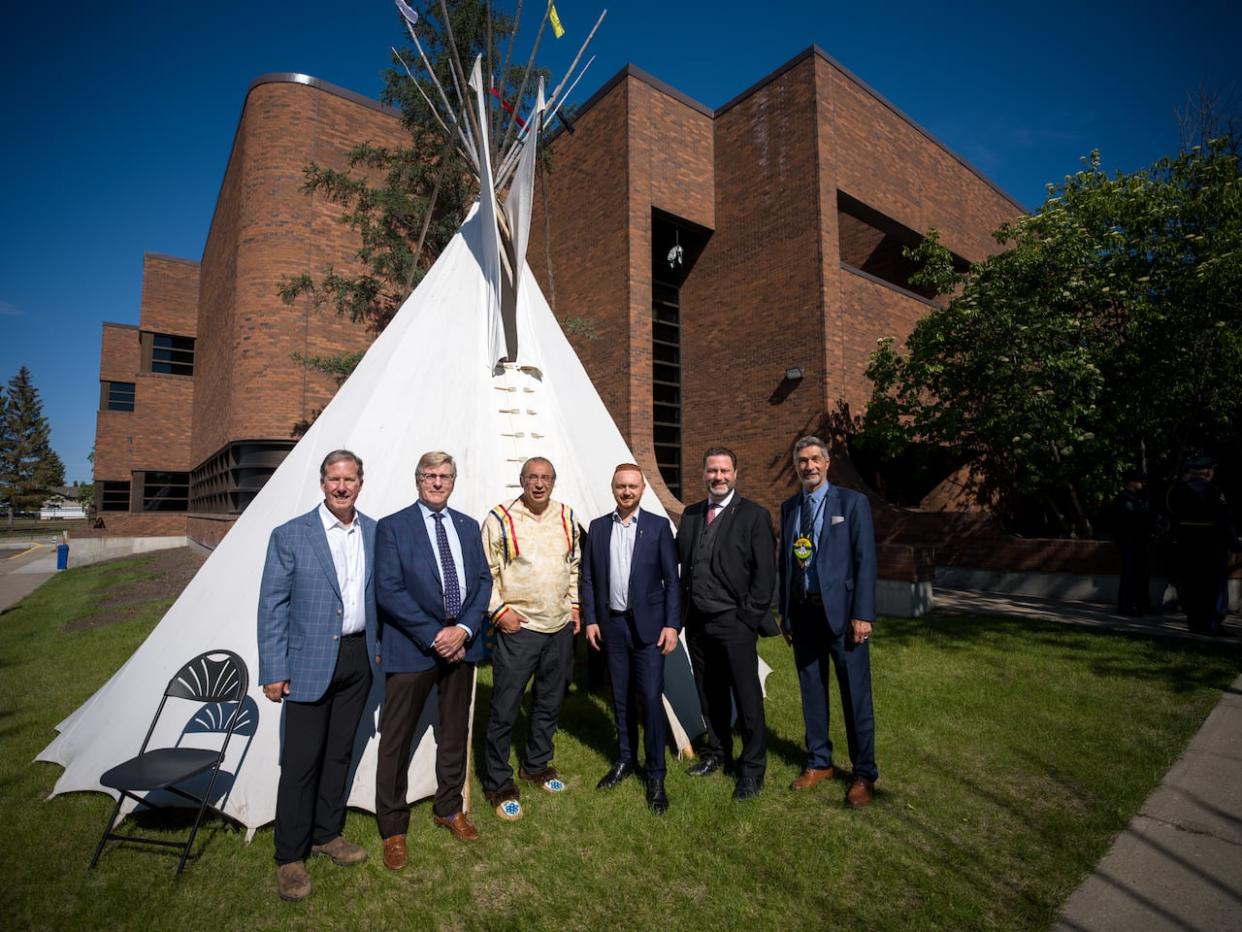New court in St. Paul, Alta., aims to provide cultural approach to justice for Indigenous people

A new court in St. Paul, a small town northeast of Edmonton, aims to provide Indigenous people with access to a culturally relevant, holistic approach to justice.
The St. Paul Healing to Wellness Court will provide Indigenous offenders access to traditional knowledge keepers, Indigenous legal counsel and elders, and access to community support agencies.
The court will include an eagle staff for admissions of oaths, and will allow smudging in the courtroom, when requested.
"I think once we stop seeing the overrepresentation of our people in the jail system, then I think we could say that we've done a good job," said Wyome Dion, co-ordinator for the St. Paul Healing to Wellness Court, and a member of Kehewin Cree Nation.
She says Indigenous people in and around St. Paul wanted an Indigenous court. She says the court can help those dealing with intergenerational trauma.
"I think of the number of our people who have gone to residential school, and we're actually continuing to still see those impacts on our nations today," said Dion.
"We have that opportunity to come up with a healing plan … [that] is actually helping address those root harms and providing that support in that safe space for them."
Dion says Justice Ivan Ladouceur was a big reason why St. Paul got an Indigenous court. The judge is Métis and a fluent Cree speaker.
"When you're in court and you see an Indigenous judge who's sitting there, but not only that, he spoke the language — the Cree language — to the people in the courtroom," said Dion, who says she first saw Ladouceur when she was working in victim services.
"I'll never forget that day because … I just said, 'I want[ed] to help in some way.'"
Response to Indigenous Justice Strategy
The creation of the court is in response to the province's 2022 Indigenous justice strategy, which included several recommendations, including the need for specialized Indigenous courts across the province.
"We embarked upon a process which involved about a year and a half of meeting with, consulting with Indigenous individuals, communities, leaders throughout the province," said Derek Redman, former chief justice for the Alberta Court of Justice, who helped create the strategy.
"One of them was the establishment of Indigenous courts in those communities where … [they] think it would be of benefit, and one of them … is in St. Paul."
Indigenous courts are already up and running in Edmonton and Calgary.
For some Indigenous offenders, says Redman, the justice system is unfamiliar to them, and confusing to navigate.
"We often say that when someone comes to court, they should recognize the place, they shouldn't feel like a stranger in a strange land … for Indigenous people, that's often the case," said Redman.
Redman says that including restorative justice practices in the court will help prevent some offenders from returning.
"The emphasis is not so much on what [the offender] did and what the consequences to them are, but rather how do you restore that person with the victim, [and] with the community," said Redman.
Redman says that the 2015 Truth and Reconciliation Commission's final report, which contains several calls to action on justice, was a guiding document in creation of Alberta's Indigenous Justice Strategy.
'We're still here, we're resilient people'
The new court opened its doors on National Indigenous Peoples Day, which Dion says is a day for people to reflect on the past, but also look to the future.
"We always think seven generations ahead and seven generations who have gone before us, and so we have that responsibility today to actually help one another," said Dion.
"We're still here, we're resilient people, we're strong people and we're going to continue to keep expressing our voices."
Resilience, Redman says, is on display at the end of an offender's healing plan, which is often capped off with a blanket ceremony.
"Families attend, it becomes a very, very moving event … people say, 'it's changed my life, I've got my life back again' … it's a very moving experience."

